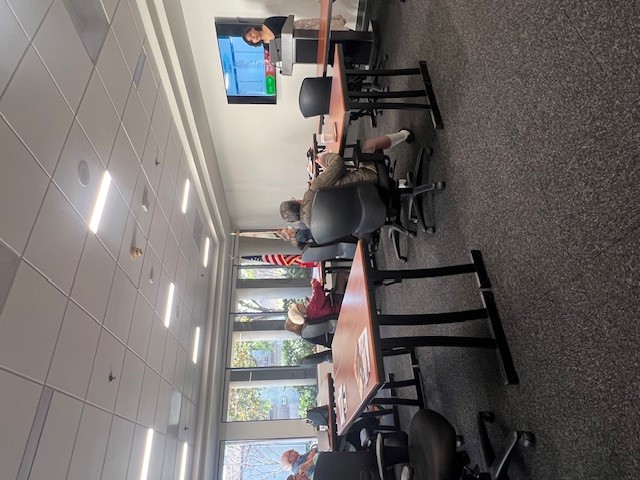

Nutrition 101: How to Lower Your Blood Sugar.
On January 15, 2025, the Cypress Senior Center hosted an enlightening session titled "Nutrition 101: How to Lower Your Blood Sugar." This event was led by Jacqueline Atwood, a Registered Dietician from Right at Home (RAH), who is dedicated to educating seniors about the critical role of nutrition in managing blood sugar levels.

The Importance of Nutrition for Seniors
As we age, maintaining a balanced diet becomes increasingly important, especially for managing blood sugar levels. High blood sugar can lead to various health complications, including diabetes, heart disease, and nerve damage. Jacqueline Atwood emphasized that understanding and implementing proper nutritional habits can significantly improve overall health and quality of life for seniors.
Key Takeaways from the Session
1. Understanding Blood Sugar Levels: Jacqueline explained the basics of blood sugar, how it affects the body, and the importance of keeping it within a healthy range.
2. Healthy Eating Habits: The session covered essential dietary changes that can help lower blood sugar levels, such as incorporating more fiber-rich foods, choosing whole grains over refined grains, and reducing sugar intake.
3. Meal Planning Tips: Practical advice on meal planning was provided, including how to balance carbohydrates, proteins, and fats to maintain stable blood sugar levels throughout the day.
4. Reading Food Labels: Jacqueline taught attendees how to read and understand food labels, making it easier to make informed choices while shopping for groceries.
5. Staying Active: While the focus was on nutrition, the importance of regular physical activity was also highlighted as a key component in managing blood sugar levels.
The "Nutrition 101: How to Lower Your Blood Sugar" session was a valuable opportunity for seniors in the Cypress community to gain knowledge and practical tips on managing their health through nutrition. Jacqueline Atwood's expertise and approachable manner made the information accessible and engaging, empowering attendees to take control of their dietary habits for better health outcomes.



